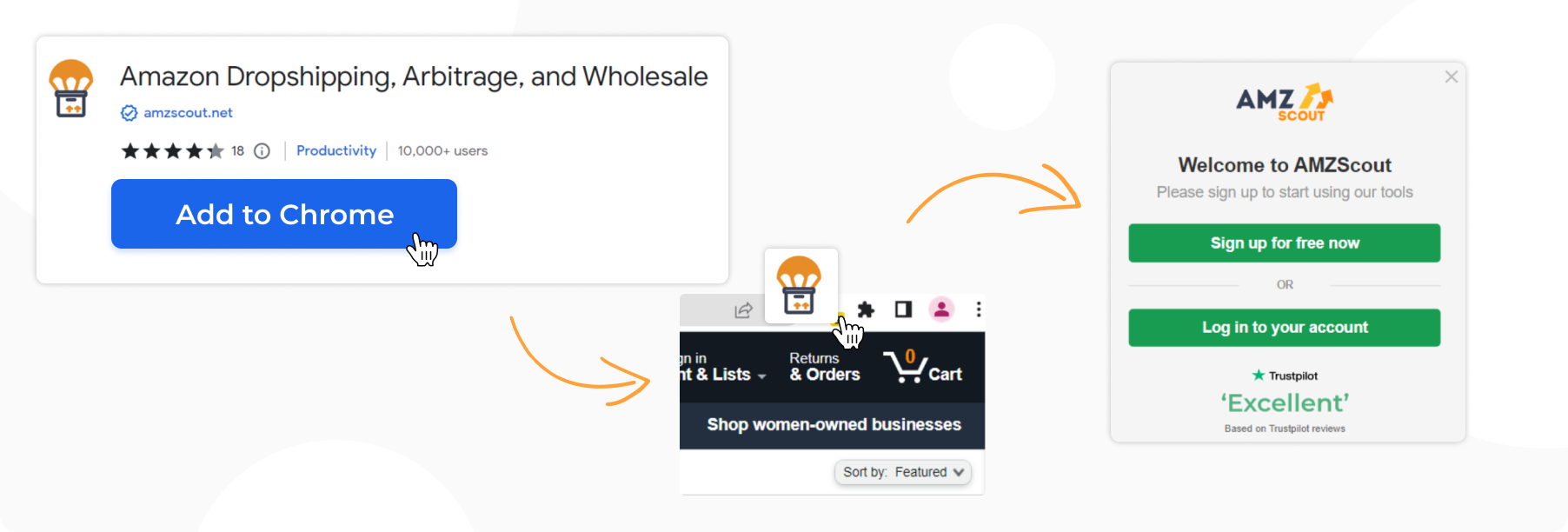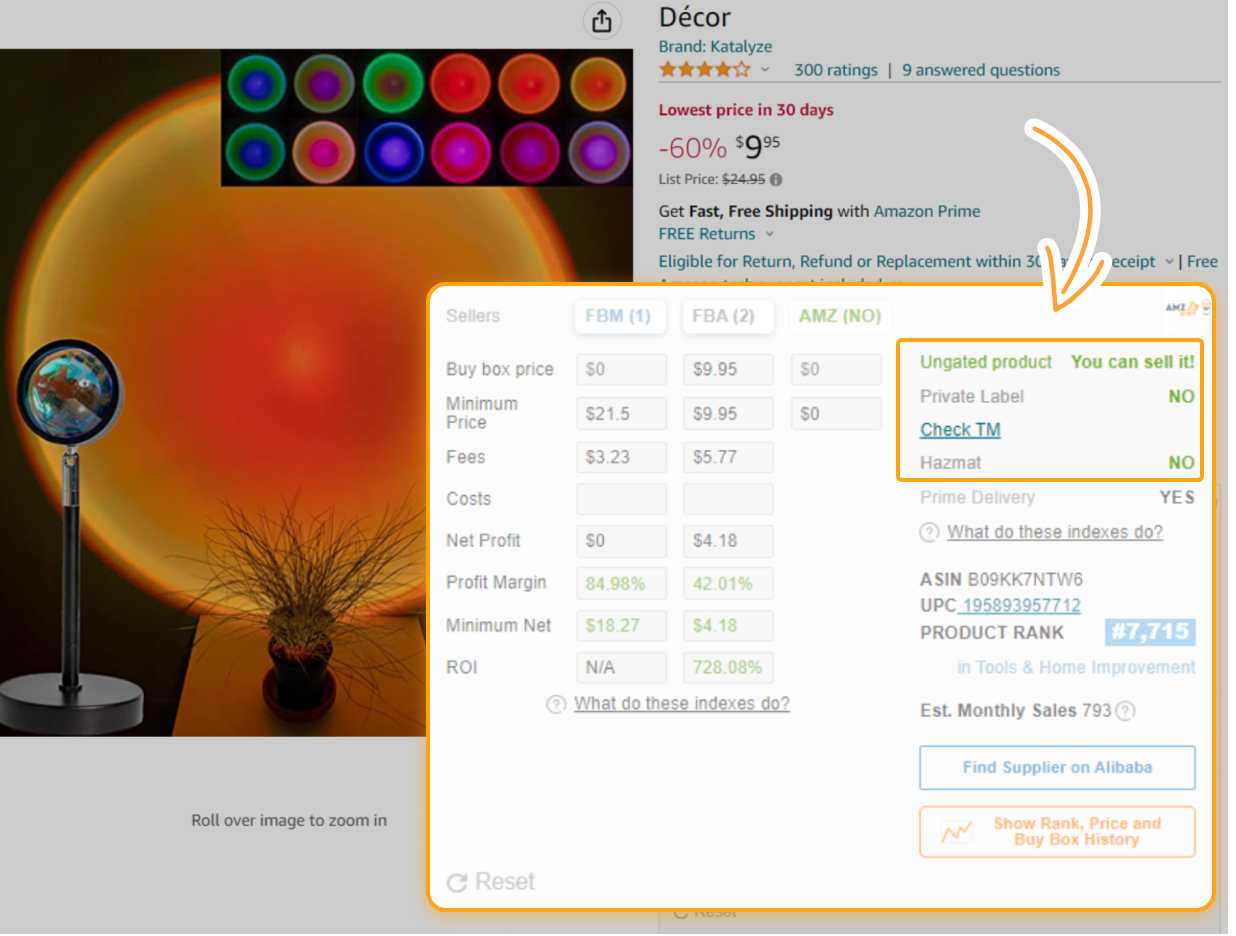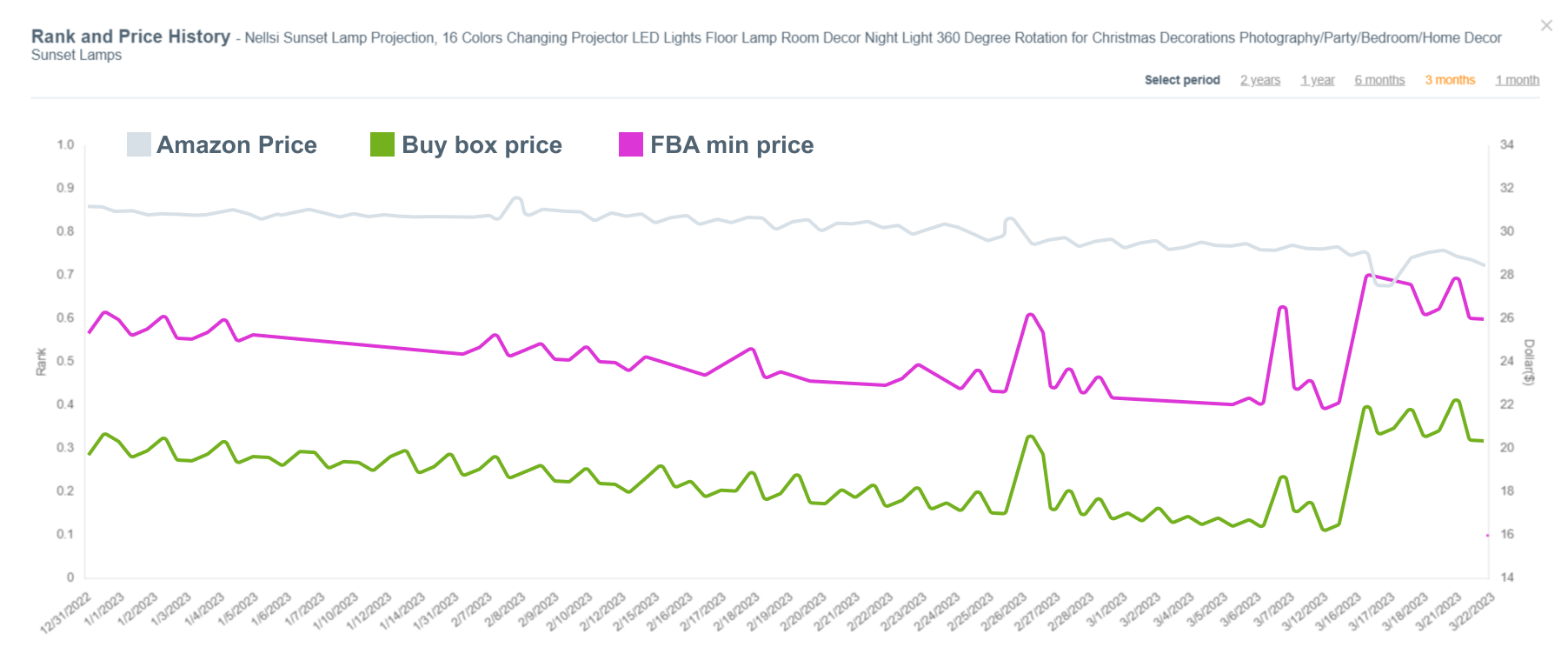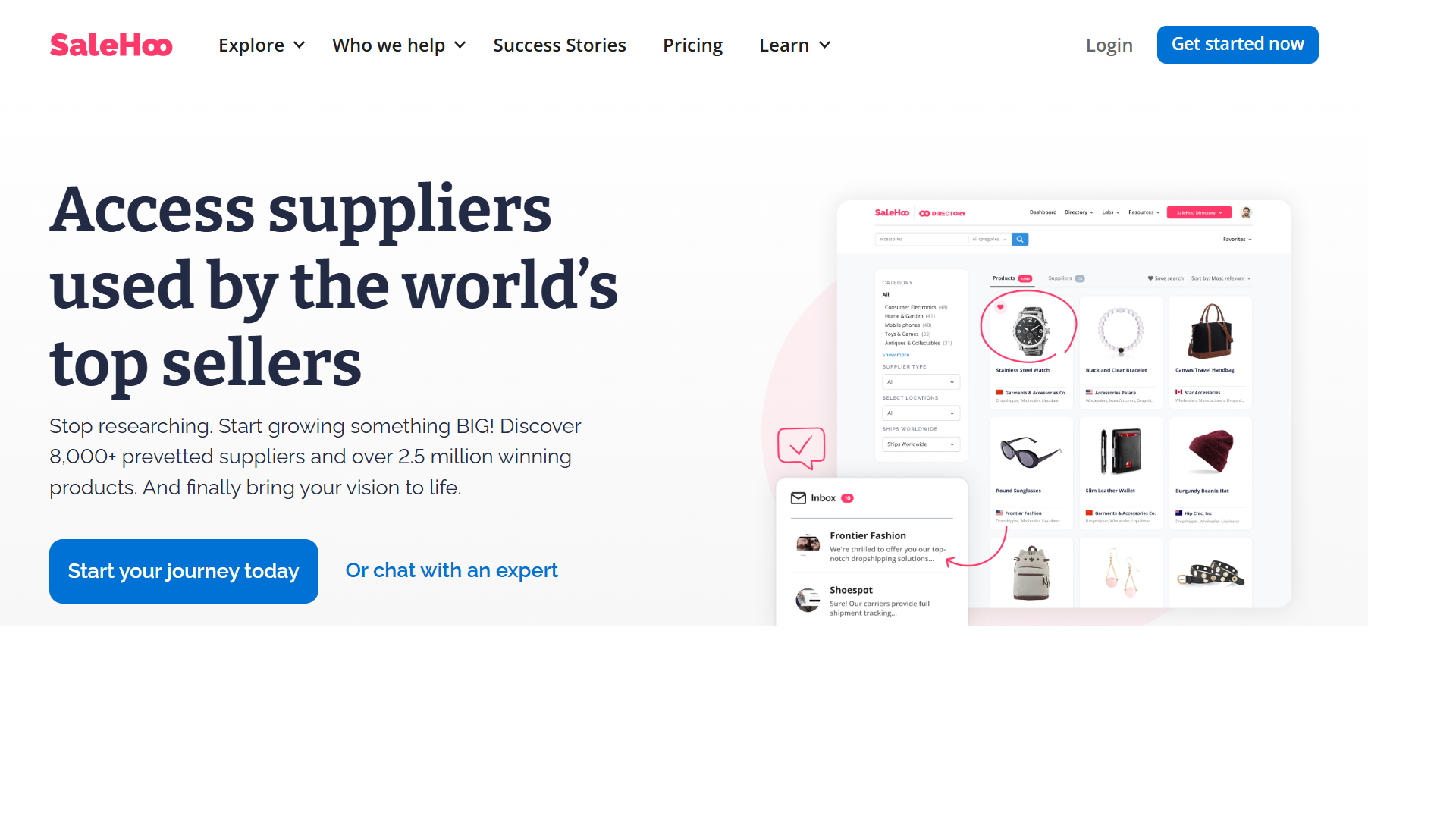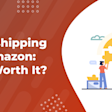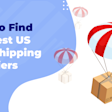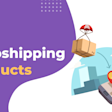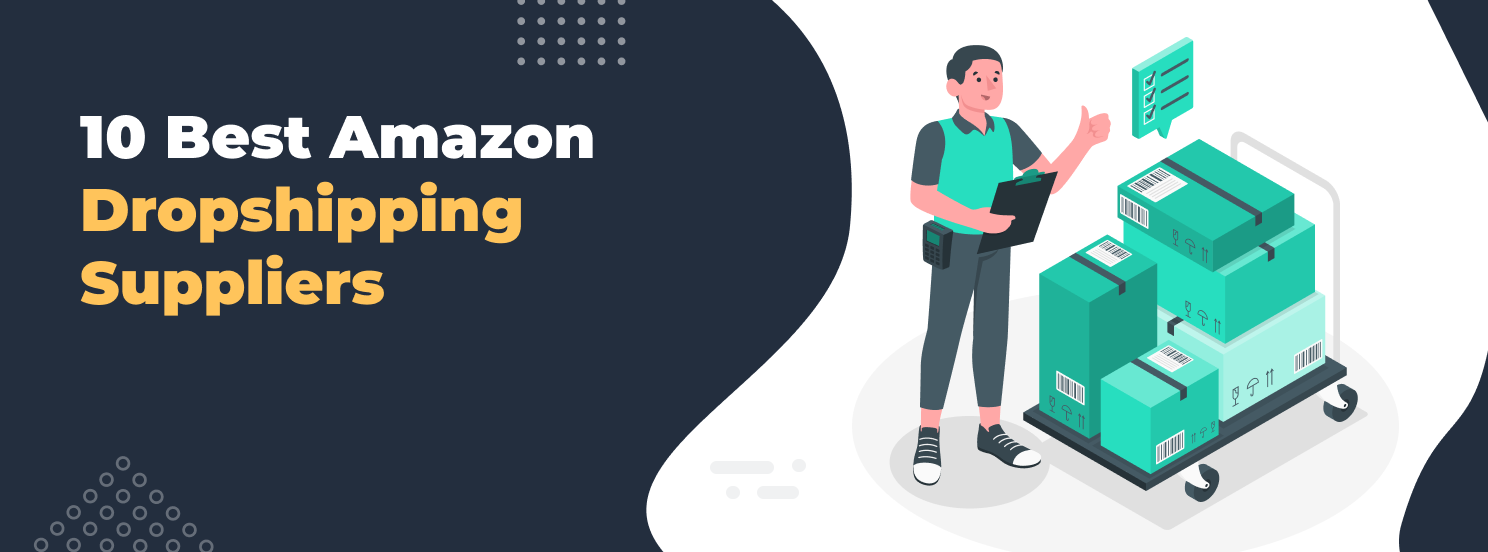
How to Find the Best Amazon Dropshipping Suppliers in 2025
A dropshipping business relies heavily on the efficiency of the supplier. The supplier’s location, product catalog, and operational practices directly impact customer satisfaction and, ultimately, the success of your business. Finding the right supplier is especially crucial for Amazon, given its strict dropshipping standards.
In this article, we’ll guide you on how to choose the best options and share the top 20 Amazon dropshipping suppliers to consider.
How to Pick the Best Dropshipping Suppliers for Amazon
As the popularity of the Amazon dropshipping business model grows, the number of available vendors has also increased. Consider these criteria to help you identify the best Amazon dropshipping supplier and build a profitable online store:
Pick the Right Product First for Your Amazon Dropshipping Business
Before selecting a dropshipping provider, you need to decide what kind of item you're looking for and verify that it has strong potential for success.
Fortunately, sellers can do this easily using AMZScout’s Dropshipping, Arbitrage, and Wholesale Extension. This tool helps dropshippers assess any item for its profitability and viability.
Here’s how to find potential profitability:
1. Install the Dropshipping, Arbitrage, and Wholesale Extension.
2. Search for products. Use the platform's search bar to look for things you’re interested in (such as one from your potential supplier’s catalog). Open the page to access detailed insights.
3. Check for selling restrictions. Navigate to the built-in window located on the right-hand side, and review these criteria to identify any selling limitations:
Gated category: The extension will indicate whether the e-commerce giant requires any approval to sell the item, such as providing a reseller certificate for branded items.
Private label: It will also highlight whether the item is exclusive to one brand or if it can be resold by other sellers.
HAZMAT status: The extension will flag items containing any hazardous materials, which may require additional certifications.
Brand permission: Use the ™ feature to check if the item is trademarked. If so, you may need to contact the brand owner for resale authorization.
4. View product history. Use the Rank, Price, and Buy Box History tool to analyze trends in product rankings and prices over time. This data helps you understand market dynamics and determine optimal pricing strategies.
5. Assess the competition. Review the relevant details shown at the top of the built-in window:
Number of competitors: If there are more than 15 other sellers offering the same thing, the competition might be too intense.
Platform's involvement: Steer clear of items for which Amazon is also a seller, as it can be challenging to compete with them.
6. Calculate potential profit. Use the built-in profit calculator to check that the profit margin exceeds 20%. To do this, enter all associated costs (including the purchase price, delivery fees, and other expenses) into the FBM (Fulfilled by Merchant) section.
Note: The extension also provides the product’s estimated monthly sales. This information helps you gauge the demand to make informed decisions about which items to sell.
These steps allow you to quickly analyze potential products, assess their market demand, and gauge profitability, giving you a competitive edge. With the right product selection, you can streamline your business and make the most of the best dropshipping suppliers for Amazon to achieve long-term growth.
Ensure Operational Alignment
Now that you know what type of inventory you plan to dropship, look for partners who offer it. Make a list of at least 10 feasible options and evaluate each one. Be sure to review the supplier's terms and conditions carefully, or contact their support team to ensure smooth operations. To do this, look at the following information:
Fast shipping: Choose U.S.-based partners to guarantee faster delivery times.
Platform integration: Make sure the supplier offers automation tools and smooth payment processing options for orders.
Return policy: Find out about any restocking fees and understand the supplier's return procedures.
Catalog availability: Verify that the supplier has a diverse selection of items and adequate stock levels.
Subscription details: Confirm payment methods, billing cycles, and cancellation policies for any subscription fees.
By focusing on operational alignment, you'll get an idea of whether the supplier’s services are a good fit for your business. Strong operational practices are one of the major benefits of working with top-rated dropshipping suppliers for Amazon.
Confirm Product Quality
Ensuring the quality of the items you plan to dropship is crucial for customer satisfaction. Here are a few tips:
Place a test order: Order a sample to assess the quality firsthand.
Check reviews: Review customer feedback to gauge consistency and quality.
Communicate with your supplier: Discuss quality control measures with your supplier to ensure reliability and ask for relevant certifications.
Note: If you’re selling top-brand things, ask for proof of authenticity and a reselling certificate.
By ensuring high product quality, you can reduce returns and boost profits when working with dropshipping suppliers for Amazon.
Follow Amazon��’s Compliance Guidelines
Selling on Amazon means adhering to their strict policies to avoid having your listings blocked or suspended. You can find the full set of rules on their website, but here are a few key guidelines to keep in mind:
No packing slips or supplier information: Sending orders with packing slips, invoices, or packaging that includes the supplier's name or contact information is prohibited.
Comply with the return policy: E-commerce giant requires a 30-day return window with no questions asked, regardless of your supplier's own return rules or any restocking fees they may charge.
Note: Your supplier must adhere to Amazon’s policies; otherwise, you'll need to find ways to maintain compliance on your own.
Since the platform’s policies can change, it’s important to stay updated. Reviewing compliance guidelines regularly will help avoid penalties and maintain a seamless selling experience, especially when working with dropshipping suppliers for Amazon.
20 Best Amazon Dropshipping Suppliers
To determine which companies are the best fit when choosing a dropshipping supplier, you need to compare them against top industry standards. Below is a list of the top 20 Amazon dropshipping suppliers, along with a detailed overview of each one to help you make an informed choice.
1. AliExpress
AliExpress remains a favorite among Amazon dropshippers thanks to its massive variety: over 100 million items covering everything from kitchen must-haves to trending gadgets. Most inventory comes from China, but many sellers now offer fulfillment from the U.S. and E.U. warehouses for quicker delivery.
There are no setup fees, though costs can fluctuate based on destination and package size. Whether you're just getting started or scaling up, AliExpress offers the kind of selection and accessibility that makes it easy to test and grow your online store.
If you’re considering dropshipping from AliExpress, check out this guide.
Pros:
Extensive product variety across multiple categories
No subscription fees and free shipping
An extensive range of vendors
Cons:
Longer shipping times, especially from China
Variable quality (requires careful supplier selection)
Potential issues with branded packaging, which may conflict with the policies
2. CJ Dropshipping
CJ Dropshipping stands out for its global fulfillment network, with warehouses in the U.S., E.U., China, and Southeast Asia, making it easier to reach customers quickly. Their catalog is packed with everything from stylish apparel to cozy home essentials, giving you plenty of variety to work with.
Costs vary depending on where items are headed, how much they weigh, and whether you need extras like custom branding or light assembly. If you're after flexibility and the ability to personalize orders, CJ offers a great balance of convenience and control.
Pros:
3-6 days for shipments to the U.S.
Reliable support services
Integration with platforms like Shopify, eBay, WooCommerce, and more
Cons:
Complicated cost structure
Users report issues with automated translation of descriptions
The app may have a learning curve for new users
3. Zendrop
Zendrop is built with dropshippers in mind, offering a curated lineup of trending finds across multiple niches, from beauty to tech and everything in between. Most orders are fulfilled through U.S. and China-based centers, giving sellers some flexibility on delivery times.
While there’s a free plan to get started, it does come with limitations, such as no access to faster U.S. fulfillment. To unlock extras like branded invoicing and priority processing, premium plans start at $49 per month.
Pros:
Print-on-demand (POD) services, TikTok Shop affiliate program, and additional services
Custom branding and packaging options
Educational resources to support dropshippers with growing their businesses
Cons:
Limited variety compared to larger marketplaces
Premium features require a subscription
4. Spocket
Spocket focuses on quality and speed, offering access to a wide variety of U.S. and E.U.-based merchants. From festive party decor and pet essentials to stylish home upgrades, the selection caters to a range of Amazon-friendly niches.
Because most items are sourced closer to your customers, delivery times are typically faster, which is an edge in today’s competitive market. Paid plans start at $39.99/month, unlocking more listings and premium features.
Pros:
14-day free trial
High-quality, vetted
vendors
Exceptional customer support with response times under one minute
Cons:
Many items are generic and lack uniqueness.
Dropshippers report slim profit margins on many items.
Processing times average two to five days, with shipping potentially taking up to 14 days.
5. SaleHoo
SaleHoo is more than just a platform. It's a full directory of vetted global merchants, with options spanning China, the U.S., U.K., Australia, and beyond. The catalog is impressively broad, covering everything from car accessories and coffee blends to wellness supplements.
It’s ideal for those who want to explore less saturated markets or source from reliable, pre-screened partners. Plans start at $27/month, making it a budget-friendly way to connect with trusted sources.
Pros:
Seamless integration with Shopify
Comprehensive market research tools
Offers various solutions, including options for
wholesalers
Cons:
No free trial available
Only integrates with Shopify
Shipping costs can be high
6. Modalyst
Modalyst is a sleek, modern platform known for its stylish and diverse catalog - think fashion, beauty, accessories, and even electronics. With fulfillment options in the U.S. and worldwide, it gives you the flexibility to serve a broad customer base while still aiming for competitive delivery times. Paid plans begin at $35/month, unlocking more listings and premium features.
Pros:
Access to unique and branded items
Customization options available
Integration with Shopify and Wix
Ability to import up to 25 products for free
Cons:
5% transaction fee
May not be suitable for budget-conscious sellers
7. Doba
Doba simplifies the dropshipping process by giving sellers access to a massive selection (over one million items!) spanning countless categories. With about 90% of its vendors based in the U.S., it’s well-positioned for quicker delivery and fewer import headaches.
The platform also offers inventory syncing and order management tools, making it easy to stay organized as your business grows. Plans start at $24.99/month, offering solid value for sellers who want both variety and efficiency.
Pros:
Integrates with 12 platforms, including Amazon
API integration available for selling on custom websites
Affiliate program offered
Cons:
Doba doesn’t vet distributors, so quality may vary
Products are often considered overpriced by users
Limited options for private labeling or print-on-demand (POD)
8. Wholesale2B
Wholesale2B gives sellers access to a huge inventory, ranging from fragrances and costumes to outdoor gear and more. Most of its partners are U.S.-based, which helps keep delivery times competitive.
The platform also integrates with Amazon for streamlined listings and order management. With starter plans beginning at just $19.99/month, it's a budget-friendly option for beginners looking to test different categories without heavy upfront investment.
Pros:
Effortless integration with 16 platforms, including API and CSV support
Ability to build and customize your own store
Price comparison feature with eBay and Amazon
Cons:
Store plans start at $49.99.
Shipping costs can be high according to users’ reviews.
Product selection can be repetitive.
9. Inventory Source
Inventory Source connects sellers with a variety of U.S.-based partners offering everything from seasonal decor like Christmas trees to niche items such as firearms accessories and musical instruments.
It stands out by combining a free directory plan with paid options that unlock advanced automation and inventory syncing tools, which is perfect for sellers who want more control without losing simplicity.
Pros:
Provides detailed analytics and comprehensive reports
Offers rare and unique items in the catalog
Fast shipping times
Cons:
Support service responses can take up to three weeks.
For businesses with over 1,000 orders per month, plans start at $299.
Amazon and Shopify sellers report serious integration issues.
10. Printful
Printful shines as a print-on-demand partner, with warehouses across North America and Europe, making it a great choice for fast, localized fulfillment. It specializes in customizable items like T-shirts, mugs, and other personalized merchandise, which is perfect for sellers looking to add a unique, branded touch to their offerings. There’s no monthly fee; you simply pay per order and printing costs, making it a low-risk option for creative entrepreneurs.
Pros:
Excellent 24/7 customer support
Affordable shipping rates
Next-day shipping for warehouse orders placed by 12 p.m
Cons:
Higher prices
Smaller product catalog compared to competitors
Additional hidden costs (e.g., stitching, premium photos, etc.) to consider
11. Banggood
Banggood offers a vast selection of gadgets, electronics, and lifestyle products primarily shipping from China, with warehouses in the U.S. and Europe. It’s popular for competitive prices and a growing international fulfillment network, making it a solid choice for sellers targeting a wide range of categories.
Pros:
Large variety of trending gadgets and electronics
Competitive pricing with frequent discounts
Warehouses in multiple regions for faster delivery
Cons:
Shipping times can be long for some items
Customer service is sometimes inconsistent
Quality control can vary by seller
12. Dropified
Dropified combines a dropshipping platform with automation tools to streamline order fulfillment. It integrates with multiple vendors and marketplaces, giving sellers a versatile toolset for managing products and orders efficiently.
Pros:
Powerful automation and integration features
Supports multiple marketplaces beyond Amazon
Easy product importing and order tracking
Cons:
Monthly fees can add up for small sellers
Learning curve for platform features
Some supplier options have limited product variety
13. Tundra
Tundra connects sellers to U.S. and Canadian wholesalers with no markups or hidden fees. It’s ideal for those looking to source quality products from North American-based partners, offering fast delivery and reliable customer service.
Pros:
No middleman markups, transparent pricing
Fast delivery across North America
Strong support and reliable partners
Cons:
Limited international shipping options
Smaller product selection compared to China-based platforms
Some categories may have higher prices
14. Wholesale Central
Wholesale Central is a free directory of wholesalers and dropshipping vendors, providing a vast list of options across many categories. It requires sellers to vet and contact distributors directly.
Pros:
No membership fees
Huge directory with diverse suppliers
Useful for discovering niche wholesalers
Cons:
No automation or order management tools
Varying reliability of listed vendors
Requires time-consuming research
15. Megagoods
Megagoods specializes in consumer electronics, home appliances, and tech accessories, primarily shipping from U.S.-based warehouses. Trusted for its brand-name inventory, Megagoods offers competitive pricing and reliable delivery, making it a go-to choice for sellers focusing on the electronics niche.
With fast fulfillment and a solid reputation for quality, the platform supports sellers who want to provide their customers with well-known and trusted products.
Pros:
U.S.-based warehouses with fast shipping
Competitive prices on electronics
Trusted for brand-name items
Cons:
Limited to electronics and appliances
Higher minimum order quantities for some items
No marketplace integrations
16. Sunrise Wholesale
Sunrise Wholesale is a U.S.-based dropshipping platform that offers access to a vast catalog of over 15,000 items, with a strong focus on health, beauty, electronics, and general merchandise.
Known for its no-membership-fee model, Sunrise makes it easy for sellers to get started quickly. With warehouses located in the U.S., it helps ensure faster delivery times compared to overseas alternatives.
Pros:
No membership fees to start
U.S.-based fulfillment for faster delivery
Large variety in health and beauty
Cons:
Website navigation can be clunky
Limited automation tools
Some products require minimum order amounts
17. AOP+ (All Over Print)
AOP+ is a specialized print-on-demand platform focusing on all-over print apparel and accessories. With warehouses in the U.K. and Europe, it’s ideal for sellers who want to offer unique, fully customizable clothing items without worrying about inventory or upfront costs.
From vibrant hoodies to personalized phone cases, AOP+ allows sellers to add their own designs easily and ship quickly across Europe.
Pros:
Focused on unique all-over print apparel and accessories
Warehouses in the U.K. and Europe for fast local delivery
No upfront inventory costs; pay per order
Cons:
Limited to print-on-demand products
Smaller product variety outside apparel and accessories
Monthly subscription needed for advanced features
18. Wholesale Hub
Wholesale Hub is a U.S.-based wholesale and dropshipping platform offering a vast range of categories, including electronics, beauty, and outdoor gear. It provides direct access to vetted wholesalers with quick turnaround times, plus a straightforward integration process with Amazon.
Pros:
Wide variety of categories and trusted U.S. wholesalers
Fast order fulfillment with domestic warehouses
Simple integration and easy onboarding
Cons:
Platform lacks advanced automation tools
Membership fees apply for full access
Limited international shipping options
19. T-Pop
T-Pop is a European print-on-demand and dropshipping platform with a strong eco-friendly focus. It offers customizable apparel, accessories, and home items, with production and fulfillment centers in France. T-Pop stands out for its commitment to sustainable packaging and carbon-neutral shipping, making it perfect for sellers wanting to promote an eco-conscious brand.
Pros:
Eco-friendly fulfillment with sustainable packaging
Focus on customization for apparel and homeware
Located in Europe, reducing delivery times to EU customers
Cons:
Limited product range compared to large global platforms
Higher pricing due to sustainable practices
Mainly focused on European markets
20. Avasam
Avasam is a UK-based dropshipping platform with automation tools, offering integration with Amazon and other marketplaces and focusing on quality distributors in the UK and Europe.
Pros:
Automated order and inventory management
Focus on UK and EU-based suppliers
Good for sellers targeting European markets
Cons:
Monthly subscription required
Smaller product range than China-based platforms
Mostly focused on UK/EU markets only
By working with multiple Amazon dropshipping suppliers, you can broaden your inventory and reduce reliance on any one provider, making it easier to scale your business. This approach allows flexibility and can help you maintain consistent customer satisfaction as you grow.
Conclusion
Finding the right Amazon dropshipping suppliers is crucial for maximizing your profits, but success also depends heavily on your product choice. Consider using the AMZScout toolkit to help identify profitable items and streamline your research. This allows you to increase revenue and lay the foundation for long-term success.
